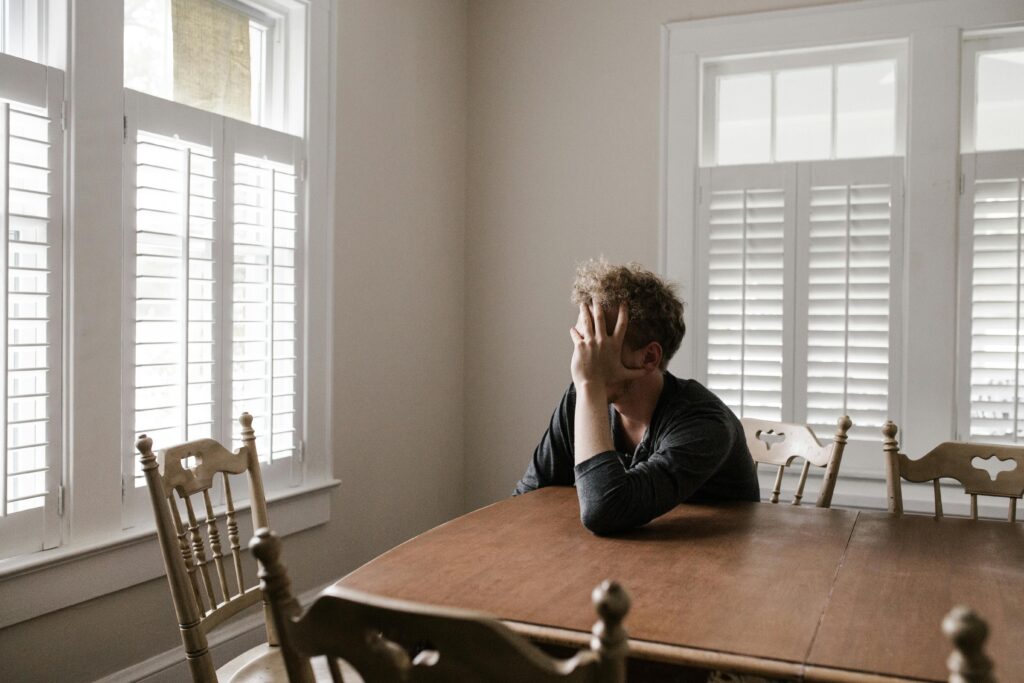
Obsessive-compulsive disorder (OCD) is a long-term mental health condition characterized by intrusive, unwanted thoughts (obsessions) and repetitive actions (compulsions) that individuals feel driven to perform. These behaviors can interfere significantly with daily life and lead to emotional distress.
At Willow Springs Healing Center, we provide empathetic, evidence-based treatment designed specifically for those facing the challenges of OCD. Our mission is to support individuals in managing their symptoms and building fulfilling, purposeful lives.
OCD manifests in various ways, often defined by the nature of the obsessions and the compulsive behaviors used to cope with them.
Despite the diversity in symptoms, all types of OCD share a cycle of obsessive thoughts followed by compulsive actions aimed at reducing distress. Effective treatment typically includes cognitive-behavioral therapy (CBT)—particularly exposure and response prevention (ERP)—along with medication such as selective serotonin reuptake inhibitors (SSRIs).

OCD is not simply a collection of eccentric behaviors—it is a complex and serious mental health condition that can impact nearly every aspect of a person’s life. While obsessions and compulsions are its hallmark features, the effects of OCD reach far beyond these symptoms, influencing physical well-being, emotional resilience, and social relationships.
The physical consequences of OCD are often underestimated, yet they can be significant and even debilitating. The repetitive behaviors driven by compulsions can give rise to a host of health concerns, including:
OCD carries a significant emotional weight. The constant barrage of intrusive thoughts can be frightening and mentally exhausting. Even when individuals are aware that their fears are irrational, the anxiety that follows can feel impossible to ignore, creating a never-ending cycle of distress and compulsive relief-seeking.
Common emotional challenges include:
The stigma surrounding mental illness can lead individuals to hide their struggles, intensifying their feelings of loneliness and emotional pain. In severe cases, OCD can contribute to suicidal thoughts. Many also experience irritability, mood swings, and trouble concentrating, making everyday activities feel unmanageable.
OCD often affects social interactions and relationships, gradually causing individuals to retreat from various aspects of their social lives:
This retreat is frequently driven by shame, fear of being judged, or a sense that others won’t understand. Over time, such isolation can greatly reduce a person’s quality of life.
Family dynamics may also be strained. Loved ones who don’t fully grasp the nature of OCD might respond with impatience or inadvertently reinforce compulsions by offering reassurance, which can make symptoms worse rather than better.
In academic or workplace settings, OCD can interfere with focus, slow down task completion, and hinder overall performance. These difficulties can lead to missed deadlines, reduced output, and feelings of inadequacy or failure.

OCD affects each person uniquely, but it generally follows a recurring cycle of intrusive thoughts and compulsive behaviors. These symptoms can touch every facet of a person’s life—manifesting physically, behaviorally, and psychologically. Gaining a clear understanding of these signs is a critical first step toward accessing the right treatment and support.
Although OCD is a mental health condition, it often results in noticeable physical effects due to repeated rituals and sustained stress. Common physical signs may include:
Behavioral symptoms are often the most recognizable signs of OCD, reflecting attempts to ease anxiety or prevent perceived threats. These can include:
The internal experience of OCD can be intense and emotionally draining, even if the signs aren’t always visible to others. Psychological symptoms may include:

Although OCD is a chronic condition, it can be successfully managed with the right combination of professional treatment, consistent support, and intentional self-care. While there may not be a definitive cure, many individuals find significant relief from symptoms and regain a strong sense of control in their lives. With dedication and expert guidance, it is absolutely possible to live a balanced, rewarding life while managing OCD.
Effective OCD treatment is not one-size-fits-all. It usually involves a combination of therapy, medication, and lifestyle adjustments—each tailored to the unique needs of the individual. Working closely with mental health professionals and staying committed to the treatment plan are key steps toward meaningful progress and long-term symptom relief.
Cognitive-behavioral therapy (CBT) remains the most effective form of psychotherapy for OCD. It helps individuals address the thoughts and behaviors that fuel their symptoms. Within CBT, specific methods have proven especially successful:
Though ERP can feel challenging initially, with guidance from an experienced therapist, it often leads to significant and lasting improvement.
Medication can play an important role, especially for individuals with moderate to severe OCD. Often, medications work best when used in tandem with therapy.
It’s important to note that medications can take several weeks to show results, and dosage adjustments may be necessary. Ongoing psychiatric care helps ensure the treatment stays effective and well-tolerated.
Daily routines and healthy habits can greatly complement formal treatment and strengthen emotional resilience. Small, consistent changes often create a foundation for long-term stability.
Emotional and social support are essential for managing OCD. A strong network can offer encouragement, perspective, and practical help during difficult times.

If you or someone you love is facing the challenges of OCD, know that you don’t have to go through it alone. At Willow Springs Healing Center, we offer compassionate, expert care through flexible outpatient programs at our Concord, MA location.
Our center is open 24/7, providing accessible support whenever you’re ready. Our treatment approach is designed to fit into your life—helping you heal while continuing to meet work, school, or family responsibilities. We focus not only on therapy but also on empowering clients to integrate recovery strategies into their everyday routines.
Don’t wait. Your journey to healing and lasting change can begin today. Contact us: